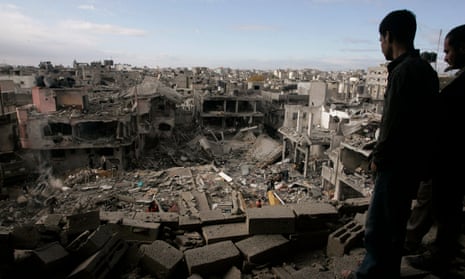In January 2010 Israeli agents converged on a luxury hotel in Dubai: their target was Mahmoud al-Mabhouh, an arms supplier for Hamas, the Palestinian Islamist movement which controls the Gaza Strip. The mission involved 27 operatives of the Mossad secret service who were posing as tourists or tennis players. The hit team and their watchers flew in from different European airports using false passports. Communications were routed via Austria to avoid surveillance. Mabhouh was killed in his room using a paralysing drug and his body left to be discovered by hotel staff the next day.
The snag was that the killing exposed the Mossad to global scrutiny – and angered an Arab country with a record of quiet cooperation with Israel. CCTV caught the agents changing disguises and stalking their prey – seen as a legitimate candidate for extrajudicial execution as he had killed an Israeli soldier and, more importantly, was a logistical link with Iran, sworn enemy of the Jewish state.
Ronen Bergman’s account of his country’s targeted assassinations contains a wealth of detail about this and other killings. Palestinians in the West Bank and Gaza have been the main victims but Lebanon’s Hezbullah, Syrian officials and Iranian nuclear scientists – all members of the “axis of resistance” – have been liquidated too. In recent years Israel has assassinated more people than any other country in the western world. “Occasional blunders have only enhanced the Mossad’s aggressive and merciless reputation,” the author writes, “not a bad thing when the goal of deterrence is as important as the goal of preempting specific hostile acts.”
Bergman is one of Israel’s leading investigative journalists with a reputation for scoops on shadowy subjects. These days he works for the New York Times. He explains that there is no formal access to documents from Israel’s military intelligence branch, the Mossad or the Shin Bet security service. But he clearly has remarkable access, citing internal accounts of operations and scores of interviews with spymasters, agent-handlers and killers, keen to tell their stories.
Tales of ruthless derring-do go back to the early days of the Zionist enterprise in Palestine when British policemen and Nazis in postwar Europe were assassinated. Later came German scientists building rockets for Nasser’s Egypt. Israeli intelligence monitored the newly created Palestine Liberation Organisation (PLO), taking it more seriously after the watershed war of 1967. There are insights into the “war of spooks” of the 1970s, which included the Munich Olympics massacre and the elimination of Palestinians, some involved in terrorism, but others, like the writer Ghassan Kanafani, not. Native Arabic speakers – Israelis of Iraqi or Egyptian origin – were a priceless intelligence asset from the start. False flag recruitments were standard.
If the big picture is familiar, there are still some fascinating revelations: one is of a plan to shoot down Yasser Arafat’s plane over the Mediterranean during the Lebanon war in 1982. It was aborted at the last minute because the VIP passenger turned out to be the PLO leader’s brother, a doctor, escorting wounded Palestinian children. Internally, some Mossad officials were unhappy about its strategic alliance with the Maronite Phalange militia, which carried out that year’s Sabra and Shatila massacre.
Bergman’s long view sharpens understanding of the asymmetrical nature of the conflict – and of the limits of force. Israel pioneered the lethal use of drones by killing a Hezbullah leader in 1992. The “start-up nation” has sophisticated technological capabilities and it is likely, ironically, that its experts designed the surveillance system that recorded the Mossad team in Dubai. Mabhouh’s killers, incidentally, were able to lock his hotel door from the inside before making their getaway. Yayha Ayyash, who trained Palestinian suicide bombers, was killed by an explosive device planted in his mobile phone.
Eliminating enemies, however, as the author demonstrates, can have downsides. Securocrats came to regret the assassination of the PLO military chief Abu Jihad in Tunis in 1988 just as the organisation was moving pragmatically towards recognition of Israel. Doubts were aired about the killing of the Hamas leader Sheikh Ahmed Yassin because it boosted Iran’s role. Arafat’s death in 2004, during the second intifada, raises intriguing questions. Even if he knew the answers, Bergman comments, the military censor would not allow him to write about them. He does reveal that six Iranian nuclear scientists were killed by Iranian opposition groups working for the Mossad. Still, the service’s former head, Tamir Pardo, publicly criticised Benjamin Netanyahu’s obsession with the Islamic Republic, arguing that the unresolved Palestinian question remains the country’s true existential challenge.
Bergman’s style tends to the sensational but that does not mask a critical strand that questions the morality and effectiveness of Israel’s approach to dealing with the enemy in its own backyard. Its covert successes, he concludes, have been tactical, not strategic, “as if history had come to a halt and there was no need to come to grips with the Palestinian question”.
Ian Black, former Middle East editor of the Guardian, is a visiting senior fellow at the Middle East Centre, London School of Economics
